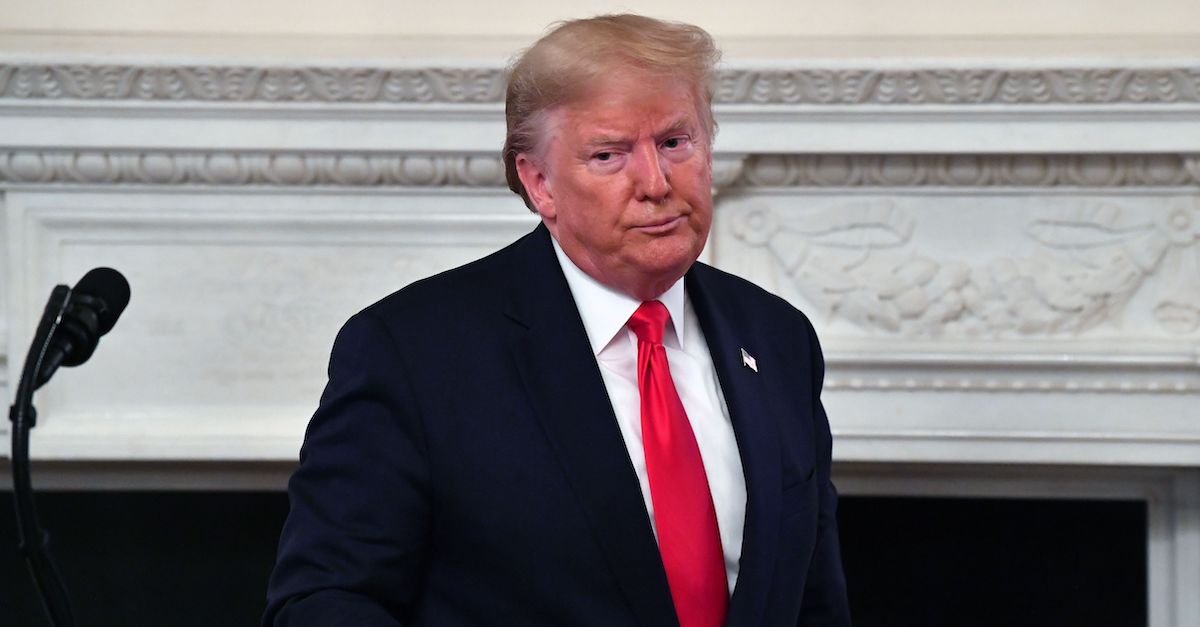
President Donald Trump and senior officials in his administration have been exploring different ways the U.S. can hold China accountable for the nation’s botched handling of the COVID-19 coronavirus, one of which is legally stripping the nation of its sovereign immunity, the Washington Post reported Thursday. Two people with knowledge of the situation told the Post that multiple top administration officials, including several from federal intelligence agencies, are expected to meet Thursday to discuss the plans in further detail.
Asked what he planned to do about China’s perceived wrongdoing during Monday’s coronavirus press briefing, the president said there were “a lot of ways you can hold them accountable,” adding that the administration was “doing serious investigations” into the matter.
According to the Post, several of the president’s advisors have championed the notion of stripping China’s sovereign immunity or cancelling a portion of U.S. debt obligations to China as a smart move politically.
“White House officials and multiple congressional lawmakers have become increasingly fixated on China’s response to the outbreak and failure to contain it, asserting Chinese officials concealed key information and refused to cooperate with international health organizations,” the Post reported.
The Foreign Sovereign Immunities Act, passed by Congress in 1976, grants foreign nations extremely broad protections from lawsuits brought in the United States. The few exceptions to the act—most of which deal with commercial activity—are extremely narrow and often rejected by domestic courts.
While stripping China of sovereign immunity would, theoretically, open the door for the federal government, individual states, or victims of the virus to sue the Chinese government for damages, it’s not that simple. For starters, the president very likely does not have the authority to unilaterally withdraw China’s sovereign immunity; that would take an act of Congress.
But even if Congress passed a measure proposed by Trump acolytes permitting lawsuits against China, that still wouldn’t do much other than risk retaliatory action from a global superpower that’s integral to the U.S. supply chain.
“It’s easy to imagine that China would refuse to participate in legal proceedings if named as a defendant in a lawsuit under one of the statutes now being floated in Congress,” Robert D. Williams, a senior researcher and lecturer at Yale Law School told the Post. “But even if China didn’t show up to court, plaintiffs would still have to prove that the Chinese state ‘discharged a biological agent’ or ‘deliberately concealed’ the virus, according to language employed in two of the Senate bills. That could be a steep challenge, as would any effort to enforce a favorable judgment by seizing Chinese assets in the United States.”
A spokesperson for China’s Foreign Ministry, Geng Shuang, on Thursday told reporters the U.S. should focus on the virus, not blaming China.
“As for punishment or accountability, as I have repeatedly stated, such rhetoric has no legal basis, and there’s no international precedent,” he said.
“At this time, undermining others’ efforts will end up undermining oneself.”
[image via NICHOLAS KAMM/AFP Getty Images]